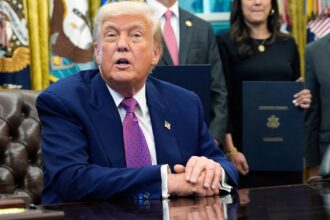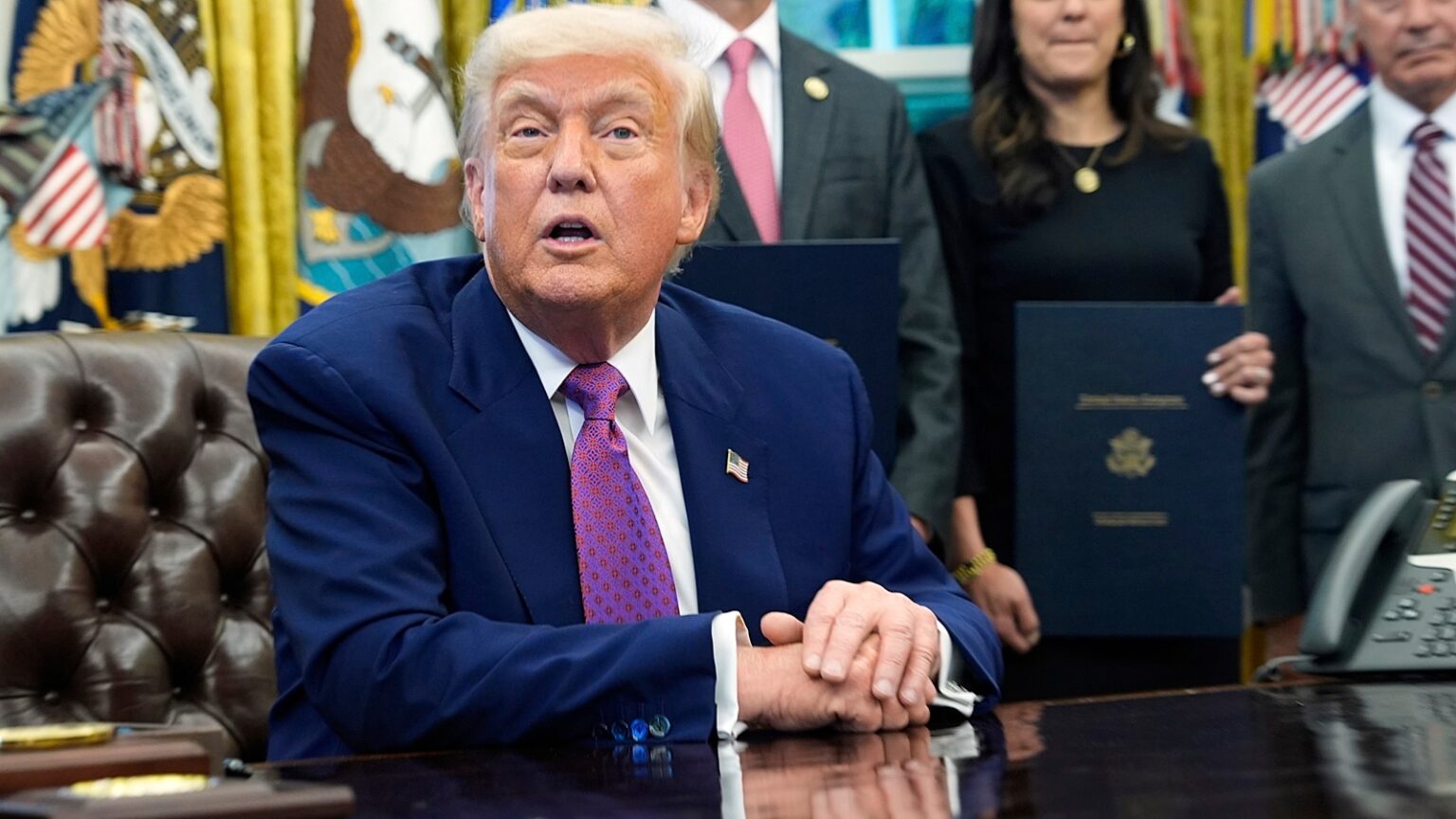Donald Trump on India-Pakistan Ceasefire: On Saturday, the United States had claimed credit for brokering the ceasefire with Trump saying that India and Pakistan had agreed on a full and immediate ceasefire “after a long night of talks mediated by the United States”.
Donald Trump on India-Pakistan Ceasefire: A day after claiming credit for the “US-brokered ceasefire agreement”, US President Donald Trump said on Sunday that he will work with India and Pakistan to see if, after a “thousand years”, a solution can be arrived at concerning Kashmir.
In this manner, he has entered the mediation debate once again. In July 2019, he had said that he was willing to mediate, but later walked back.
On Sunday morning, President Trump posted on Truth Social, “Additionally, I will work with you both to see if, after a “thousand years,” a solution can be arrived at concerning Kashmir.”
“I am very proud of the strong and unwaveringly powerful leadership of India and Pakistan for having the strength, wisdom, and fortitude to fully know and understand that it was time to stop the current aggression that could have lead to the death and destruction of so many, and so much,” Trump said.
“Millions of good and innocent people could have died! Your legacy is greatly enhanced by your brave actions,” he added. “I am proud that the USA was able to help you arrive at this historic and heroic decision. While not even discussed, I am going to increase trade substantially with both of these great Nations. Additionally, I will work with you both to see if, after a “thousand years,” a solution can be arrived at concerning Kashmir. God Bless the leadership of India and Pakistan on a job well done!!!”
Foreign Secretary Vikram Misri announced that the directors general of military operations (DGMOs) of India and Pakistan have agreed to stop all firings and military action on land, air and sea with effect from 5 pm on Saturday.
The brief announcement by the foreign secretary came shortly after US President Trump said India and Pakistan have agreed to a “full and immediate ceasefire”.
CNN reported that a core group of top US officials — including Vice President JD Vance, Secretary of State and interim national security adviser Marco Rubio, and White House chief of staff Susie Wiles — had been closely monitoring the escalating conflict between India and Pakistan when on Friday morning, the US received alarming intelligence, Trump administration officials told CNN. While they declined to describe the nature of the information, citing its sensitivity, they said it was critical in persuading the three officials that the US should increase its involvement.
Vance himself would call Indian Prime Minister Narendra Modi.
The Vice President briefed President Donald Trump on the plan, then spoke with Modi at noon ET on Friday, making clear to the Indian prime minister that the White House believed there was a “high probability for dramatic escalation as the conflict went into the weekend”, the administration officials said. Vance encouraged Modi to have his country communicate with Pakistan directly and to consider options for de-escalation, the officials said.
The peace deal came eighteen days after a deadly terror attack in Kashmir’s Pahalgam prompted India to launch a military strike against Pakistan leading to four days of fierce confrontation.
Announcing the ceasefire, Foreign Secretary Vikram Misri said at a media briefing Saturday evening, “The Director General of Military Operations (DGMO) of Pakistan called the Director General of Military Operations of India at 1535 hours IST earlier today. It was agreed between them that both sides would stop all firing and military action on land and in the air and sea with effect from 1700 hours Indian Standard Time today. Instructions have been given on both sides to give effect to the understanding.”
The DGMOs will talk again at noon on May 12, he said.
The United States, however, claimed credit for brokering the ceasefire. President Donald Trump said the two countries agreed on a full and immediate ceasefire “after a long night of talks mediated by the United States”.
External Affairs Minister S Jaishankar framed the ceasefire as the working out of an “understanding” between India and Pakistan. “India has consistently maintained a firm and uncompromising stance against terrorism in all its forms and manifestations. It will continue to do so,” he wrote on X. Having drawn new redlines by conducting strikes on terror sites not just in Pakistan-occupied Kashmir but across the International Border deep inside Pakistan, Jaishankar’s assertion underlines that Islamabad will have to pay a heavy price for state-sponsored terrorism.
Post the announcement, Jaishankar and National Security Advisor Ajit Doval spoke to ministers in key countries including China, Saudi Arabia and the European Union.
Vance spoke with Prime Minister Modi, the New York Times said, quoting a person close to the Vice President.
In his statement, Rubio also said India and Pakistan “have agreed… to start talks on a broad set of issues at a neutral site.” This has been contested by Indian officials, who said all “coercive diplomacy measures” including the suspension of the Indus Water Treaty remain in place.
Government sources in New Delhi said the decision to stop firing and military action was worked out “directly between the two countries”, and there was no “third party involvement”. India always insists that India and Pakistan resolve issues without any mediation by a third party — something that is set in the 1972 Simla agreement.
“The Pakistan DGMO initiated the call this afternoon, after which discussions took place and an understanding was reached. There is no decision to hold talks on any other issue at any other place,” a source, who did not wish to be named, said. Further, there are “no pre-conditions” and “no post-conditions” to the understanding, the source said.
In a post on X, Pakistan Deputy PM and Foreign Minister Ishaq Dar wrote, “Pakistan and India have agreed to a ceasefire with immediate effect. Pakistan has always strived for peace and security in the region, without compromising on its sovereignty and territorial integrity.” This appears to be Pakistan government’s core concern that the “sovereignty and territorial integrity” cannot be compromised — as was perceived to be breached by India conducting the strikes in nine locations deep inside Pakistan.
Earlier in the day, after a phone conversation with Rubio, Jaishankar had said that India’s approach has always been measured and responsible. Rubio, who also spoke to Munir, said that he “offered US assistance in starting constructive talks in order to avoid future conflicts”. This was the first direct contact between the US administration and the Pakistan Army Chief.





